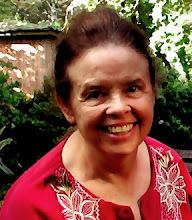

It’s useful to be able to plan ahead and anticipate the future, but sometimes simply seizing on a chance encounter opens up a whole new avenue of experience. Many significant events in our lives begin in this unexpected way, everything from meeting a future spouse to finding a career to moving to a new city. Looking back, even our own particular conception and birth are completely fortuitous.
For me, a letter from a stranger led to a lifelong friendship. It was a handwritten letter not even addressed to me, rather to the director of the American Occupational Therapy Association, where I had been working for more than eight years. Written in Spanish, it was handed over to me to translate since I was fluent in the language after spending two years in my teens living with my family in Colombia.
The letter came from Cuba from a writer who identified himself as Armando, age 25. He said he suffered from a rare hereditary kidney disease that already had required five surgeries, leaving him with only a fraction of one kidney. To stay alive, he desperately needed medications unavailable in Cuba. Since this letter obviously had nothing to do with occupational therapy, my director advised me to simply discard it. Instead, I wrote back, Querido Armando, Dear Armando.
In subsequent correspondence, I learned that Armando’s illness was called cystinuria and that the medications he needed were Thiola, potassium citrate, and citric acid. Citric acid? Surely that compound, derived from common fruits, was available in tropical Cuba. And what about Cuba’s supposedly superior health care system, used to justify curbs on civil liberties to protect the benevolent socialist system from threats from the giant to the north? The year was 1990, just before the Soviet pull-out and subsequent free-fall of the Cuban economy, also before Venezuelan President Hugo Chavez stepped in to rescue the Castro regime from total collapse. Still, there were severe shortages of medicines, Armando insisted, with fellow patients with his disease already dying, often painfully. That was the reason for his urgent appeals sent to organizations whose names and addresses he had found in a medical library. One of his letters had arrived at my organization, from where he was very glad to have received a reply.
Once I’d agreed to try to help Armando, the next task was finding a physician willing to write prescriptions for a patient living in another country. Through friends of friends, I found a sympathetic doctor working at the Pan American Health Organization. With his prescriptions in hand, I discovered that I had to prepay a pharmacy to order the medications, as it did not usually carry them. The cost for a month’s supply was a hefty $300, a definite strain on my budget as a single parent. I put in the first order, then looked around for a reliable traveler to Cuba to deliver the meds personally to Armando. Later, on several trips to Cuba myself, I took medications to him directly, although on my first visit in the post-Castro period, I failed to find his house. Cuban streets are often unmarked and he lived in a distant Havana suburb.
Meanwhile, my own 27-year-old son, Andrew, died unexpectedly in 1993 after a work accident. The next year, a Cuban foster son, Alex, who had arrived as an unaccompanied minor during the 1980 Mariel boatlift, died of AIDS. Devastated as I was by their premature deaths, I felt a greater urgency than ever to save Armando.
Finally, in 1997, after making numerous humanitarian and human rights visits, I was ejected from Cuba by state security agents. I then told Armando, in a phone call that I hoped was not being monitored, that I would not be returning. So, he would have to come to the United States, because I could not afford to continue to supply his medications, especially given the uncertainty of sending them via other travelers. When my official request for a U.S. humanitarian visa for Armando failed, I went on to plan B, obtaining a letter from a kindly pastor in Mexico inviting him to visit there. That required getting a Mexican visa, buying a roundtrip air ticket (since, ostensibly, he would be returning to Cuba), and paying the several hundred dollars in exit fees demanded by the Cuban government. All that was not so easy to arrange long-distance between countries lacking diplomatic relations, but, together, Armando and I managed to do it.
From Mexico, Armando swam across the Rio Grande (actually, Río Bravo in Spanish), was duly captured by American border patrol agents, sent to immigration detention, and eventually released under the special provisions for Cubans who actually set foot on U.S. soil. Now Armando is an American citizen working as a medical equipment technician in Miami, married with two young step-daughters, and has brought his own son to this country, using his own indirect route via Mexico. I see the family regularly during a Miami stopover after my annual humanitarian visit to Honduras, where I recently served as a Peace Corps health volunteer. The last time Armando’s family and I were together was in March 2014. So, a chain of events and an enduring friendship started out with only a simple letter. What if I’d just tossed it into the trash, as my association director had advised me to do?
A longer, more detailed version of this and other stories appear in my new memoir, Confessions of a Secret Latina: How I Fell Out of Love with Castro & In Love with the Cuban People. I blog at http://honduraspeacecorps.blogspot.com

[Photos: Author with Armando in Cuba, 1997; author w Armando & family, Miami, 2011]
Leave a Reply